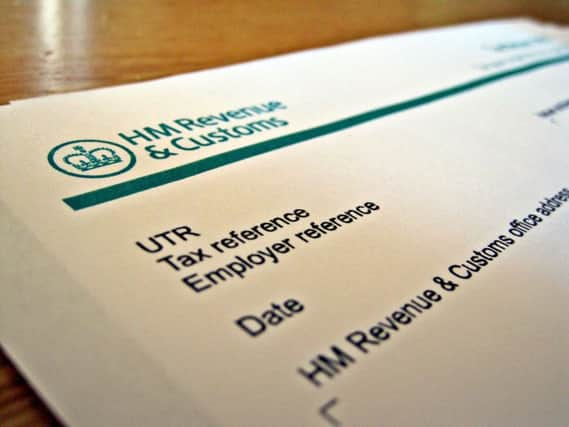Revenue Scotland launches £1.7 million tax crackdown


More than £1.7 million of penalties were issued by Revenue Scotland in 2017/18 - a 500 per cent increase on the year before, according to the body’s latest annual report.
It coincided with a significant £74m increase in the amount of revenue collected by the new body.
Advertisement
Hide AdAdvertisement
Hide AdThe significant hike in penalties, up from £342,00 in 2016/17, has been partly put down to a number of “legacy cases” from previous years being identified by the body which collects land and buildings transactions tax (LBTT), formerly stamp duty, in Scotland, as well as landfill tax.
“Work to identify and issue penalties for a number of legacy cases resulted in an increase in the number of penalties administered during 2017-18,” the report states.
Penalties are issued where returns have been submitted late, where taxes have been paid late and where a tax return contains inaccuracies or Fines of £100 are the punishment for a late return, with “escalating penalties” for longer delays.
Revenue Scotland does not have criminal investigation powers, but is part of a “multi-agency Governance Group” along with representatives from Police Scotland, HMRC, Sepa and the Crown Office and Procurator Fiscal Service. The group consider cases involving tax avoidance or tax evasion.
The body, which was founded at the start of 2015, collected £707m in taxes last year.
LBTT rose by 15.2 per cent to £557m between 2017/18 and the previous financial year, around £50m more than budget estimate.
The landfill tax take fell by 0.7 per cent to £147m in the same period, down more than £1m on the Budget Act estimate.
Revenue Scotland chairman, Dr Keith Nicholson, said: “We have seen a year-on-year increase in tax revenue to support public services and this increased by £74m, or 11.7 per cent, in 2017-18 compared to the previous year.
Advertisement
Hide AdAdvertisement
Hide Ad“The amount transferred to the Scottish Consolidated Fund since Revenue Scotland operations began reached £1.8bn by 31 March 2018, underlining the importance of devolved tax to support Scotland’s public finances.”
He added: “In addition, Revenue Scotland has seen an increase in revenue from direct tax compliance of more than £400,000 in the reporting period compared to 2016-17.”
This had risen from from £1.9m in 2016-17 to £2.4m in 2017-18.
Minister for Public Finances Kate Forbes said: “The increase in revenue reported by Revenue Scotland is welcome news and underlines the importance of the fully devolved taxes to Scotland’s economy and our public services.
“These figures show that our progressive approach to taxation is working, with revenues from the fully devolved taxes rising by £74m to £707m in 2017-18 and LBTT revenues £50m higher than forecast.”